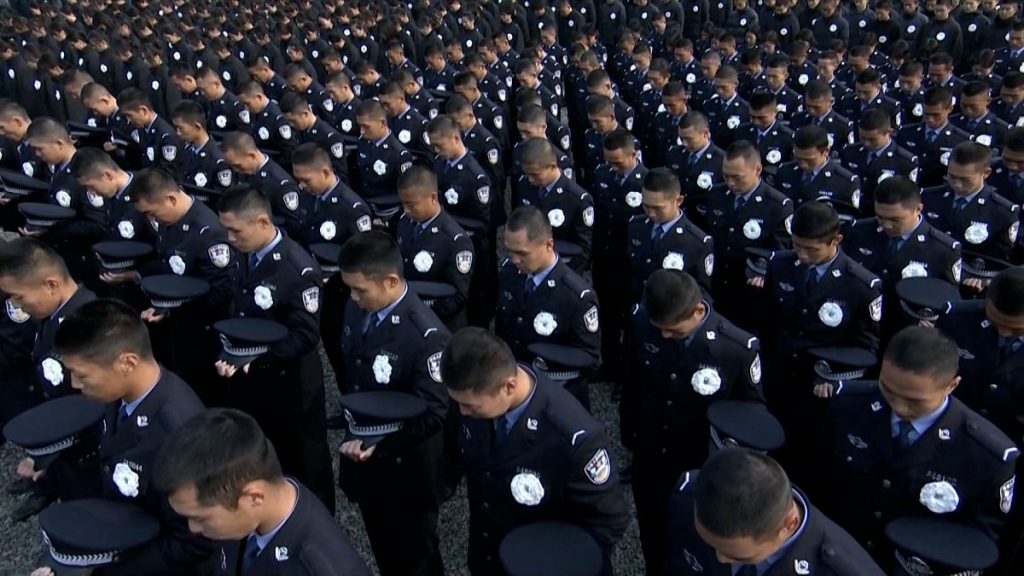The Nanjing Massacre, a horrific episode in human history, unfolded during the Second Sino-Japanese War in 1937. Following the capture of Nanjing, then the capital of the Republic of China, the Imperial Japanese Army embarked on a six-week reign of terror, characterized by widespread and systematic violence against Chinese civilians and disarmed combatants. This period witnessed unspeakable atrocities, including mass murder, rape, looting, arson, and other forms of inhumane treatment, leaving an indelible scar on the collective memory of the Chinese people and serving as a stark reminder of the brutality of war. While the precise number of victims remains a subject of debate, historical accounts and documented evidence point to a staggering loss of life, with estimates ranging from tens of thousands to hundreds of thousands. The scale of the atrocities committed during this dark chapter cemented the Nanjing Massacre’s place as one of the most horrific war crimes of the 20th century.
The invasion of China by the Imperial Japanese Army in 1937 marked a significant escalation of the Second Sino-Japanese War. Driven by expansionist ambitions and a sense of racial superiority, the Japanese military pursued a ruthless campaign of conquest, targeting major Chinese cities and inflicting immense suffering on the civilian population. The capture of Nanjing, a symbolic and strategic victory for the Japanese, was followed by a breakdown of military discipline and a systematic campaign of violence against the city’s inhabitants. The Japanese army, fueled by a dehumanizing ideology and a culture of impunity, engaged in widespread acts of brutality, including the systematic execution of prisoners of war, the mass rape of women and girls, and the indiscriminate killing of civilians. The atrocities committed in Nanjing were not isolated incidents but rather reflected a broader pattern of Japanese war crimes throughout the Second Sino-Japanese War and World War II.
The events of the Nanjing Massacre stand as a chilling testament to the depths of human cruelty and the devastating consequences of unchecked militarism. Eyewitness accounts, documented by both Chinese survivors and foreign nationals present in the city during the massacre, paint a harrowing picture of the systematic and widespread nature of the violence. These accounts detail the horrific scenes of mass executions, where thousands of Chinese men were lined up and shot, bayoneted, or decapitated; the brutal rape and sexual assault of women and girls, often followed by their murder; and the widespread looting and destruction of property, leaving the city in ruins. These testimonies, corroborated by photographic and documentary evidence, provide irrefutable proof of the scale and barbarity of the atrocities committed by the Japanese army.
The international community responded to the Nanjing Massacre with shock and condemnation, though the immediate repercussions for Japan were limited. News of the atrocities, reported by foreign journalists and missionaries who had witnessed the events firsthand, reached the world stage, generating widespread outrage and condemnation. However, the international community, preoccupied with the growing threat of war in Europe, was slow to take concrete action against Japan. While some individual nations and international organizations offered humanitarian aid and condemned the atrocities, no significant sanctions or military interventions were undertaken. This inaction arguably emboldened the Japanese military and contributed to the escalation of violence in the East Asian theater.
The historical legacy of the Nanjing Massacre continues to shape relations between China and Japan. For China, the massacre represents a profound national trauma, a symbol of Japanese aggression and a stark reminder of the suffering endured by the Chinese people during the war. The official narrative of the massacre, enshrined in Chinese history textbooks and commemorated through national memorials and museums, emphasizes the scale of the atrocities and the victimhood of the Chinese people. Japan, on the other hand, has grappled with its wartime past in a more complex and often contentious manner. While some Japanese historians and politicians have acknowledged and apologized for the atrocities committed in Nanjing, others have sought to downplay or deny the scale of the massacre, leading to ongoing historical disputes and diplomatic tensions between the two countries.
The Nanjing Massacre serves as a potent reminder of the importance of historical memory and the enduring impact of war crimes on societies. The ongoing debate surrounding the massacre highlights the challenges of achieving historical reconciliation and the importance of accurate and unbiased historical accounts in promoting understanding and preventing future atrocities. The lessons of Nanjing resonate beyond the specific context of the Second Sino-Japanese War, offering a universal cautionary tale about the dangers of unchecked nationalism, militarism, and the dehumanization of the “other.” By remembering and learning from the horrors of the past, we can strive to build a more peaceful and just future.














